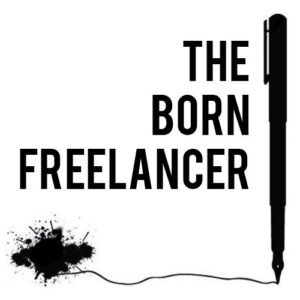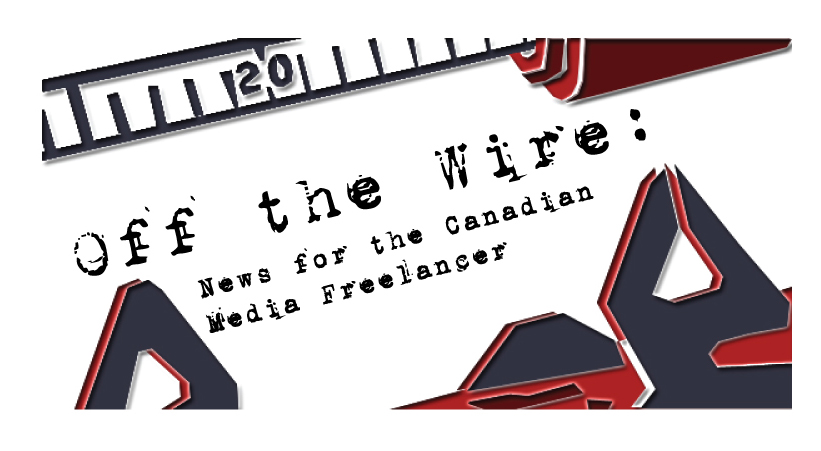Webinar: How to Win Government of Canada Contracts
The Government of Canada spends about $20 billion a year on goods and services. Even sole proprietors can sell directly to the feds—no matter where they are in Canada or whether or not they offer bilingual services. This webinar guides you through the basics, like making sure your firm is registered on the mandatory ProServices buying tool, getting security clearance and more. You’ll also learn about CanadaBuys, a new site that will eventually allow all levels of government in Canada to buy from federal lists of suppliers.
This webinar is part of the Canadian Freelance Guild’s Business of Freelancing series.
Our Presenter
 Marion Soublière
Marion Soublière
Marion Soublière of M.E.S. Editing and Writing Services in Ottawa has been winning Government of Canada contracts since 2008.
In 2010, she published the book Getting Work with the Federal Government: A Guide to Figuring Out the Procurement Puzzle.
More recently she has blogged about procurement developments at The Editors’ Weekly.
How to Win Government of Canada Contracts
- Online: Thursday, May 19th, 2022
- 7pm to 8pm Eastern Time
- $5 for members
- $15 for non-members
You can register for this webinar right here.
Learn more about the cost and benefits of membership in the CFG on this webpage.
The link to the Zoom webinar will be sent to you via email about half an hour before the start time. Please check your spam or junk folders if you can’t find the email, and contact organizer@canadianfreelanceguild.ca if you haven’t received the link 10 minutes before the scheduled start time. This webinar will be recorded and posted to the CFG Video-On-Demand site. Once posted, all paid registrants will receive a link and instructions on how to view.
Webinar: Public Speaking Skills: A Freelancer’s Marketing Tool
Studies have found that people fear speaking in public more than death. In addition to sharing fundamentals of public speaking, our Toastmasters International presenter will steer you away from trepidation and towards dynamic speechmaking. Different forms of public presentations will be discussed, including in-person and virtual and there will also be tips on how to monetize your public speaking engagements.
This webinar is part of the Canadian Freelance Guild’s Business of Freelancing series.
Our Presenter
 CFG Founding Member Lisa Caroglanian Dorazio
CFG Founding Member Lisa Caroglanian Dorazio
A seasoned Toastmasters International member and award-winning speaker, Lisa’s speeches range from addressing association AGMs to the mastermind mentoring group she founded.
Lisa’s tips create a difference in your personal and business development. Lisa believes that “practice makes perfect” and strives always to reach that goal.
Public Speaking Skills: A Freelancer’s Marketing Tool
- Online: Thursday, May 5th, 2022
- 7pm to 8pm Eastern Time
- $5 for members
- $15 for non-members
You can register for this webinar right here.
Learn more about the cost and benefits of membership in the CFG on this webpage.
The link to the Zoom webinar will be sent to you via email about half an hour before the start time.
Please check your spam or junk folders if you can’t find the email, and contact organizer@canadianfreelanceguild.ca if you haven’t received the link 10 minutes before the scheduled start time. This webinar will be recorded and posted to the CFG Video-On-Demand site. Once posted, all paid registrants will receive a link and instructions on how to view.
The Born Freelancer Reveals: Secrets of Where I Like to Work
This series of posts by the Born Freelancer shares personal experiences and thoughts on issues relevant to freelancers. Have something to add to the conversation? We’d love to hear from you in the comments.

Working freelancers learn to create under the most challenging circumstances.
Loud noise. Flashing lights. Distractions of every kind.
But each of us probably has a favourite kind of space in which to write, the idealized type of location in which to pour out our hearts and minds onto our keyboards with optimal success.
For me, the craft of writing has three distinct phases: Prep, Writing and Editing. Each requires its own separate and ideal circumstances for my maximum prolificness.
Phase 1—Prep
This is the acquisition of ideas (and, if required, the further researching of them). I’m often asked, “Where do your ideas come from?” The answer is banal but compelling: They come from all around me. I genuinely believe the best ideas are gifts from the universe. They have somehow been bequeathed to me for reasons beyond my comprehension. I remain nevertheless grateful for their arrival and respectful of their lineage.
I carry a number of notebooks wherever I go. They’re crammed full of ideas and scraps of ideas. They are the raw material I will later ponder and harvest. I used to carry a small digital recorder but found I ended up with a lot of unlistened-to audio requiring a patience I do not possess to process.
I know writers who find their most useful inspiration in the most overwhelming circumstances such as noisy bars, night clubs and social events. When facing a looming deadline I prefer solitary walks. They allow my brain to process whatever it has noticed in the busy world subconsciously and bring it to my attention consciously in the pursuit of a solution to whatever challenge I am facing creatively.
Phase 2—Finding the Words
This is the brutal act of sitting down and subjecting often abstract ideas to the ultimate test of making them real on a screen or page. I say “brutal” because it requires discipline and sheer force of will. Some sentences will flow freely, almost of their own accord. Others require enormous perseverance and internal strength, the proverbial rolling of a dead elephant up a steep hill. Some ideas will stand up to much critical scrutiny, others may fall injured to the side, never to be resurrected.
This inner struggle can be mitigated by conducive surroundings.
Music or no music? Some writers require complete silence, finding aural distractions to be an impediment to their creativity. Me, I crave music at this phase. Preferably upbeat jazz or light classics, whose rhythm and beat I can use as a tidal wave under my word processing mother-board, keeping me afloat during lulls and raising me up at times of particular inspiration. Music with lyrics, however, can be too distracting, as I am often drawn into the songwriter’s matrix and away from my own thoughts.
Where do I write? I have written while sitting on the end of a bed in small studio apartments, on kitchen table tops, in cubicles at the library, in dingy disused offices and on park benches during beautifully sunny summer days, to name just a few locations.
For a good long while I was certain my favourite space in which to write was a dedicated home office of my own.
- Book shelves up to the ceiling
- A good music system
- Good lighting
- A comfortable office chair
- A huge desk with lots of drawers
- And the necessary isolation required to devote oneself to one’s work without hinderance or interruption
It was magical.
Such a dedicated work-only space also provides a considerable practical advantage at tax time. The square footage of any dedicated business-use space in a home can be used in calculations to help defray taxes. Consult the CRA website or local tax office for further details.
I no longer have that dedicated home office. I continue to work without it.
Phase 3—Editing
Some great artist once said the secret of sculpture was to chip away everything that wasn’t your subject. Good editing is like that too. You have to take your beloved words, and ruthlessly cut away all but the absolutely necessary. It can be traumatic for some writers. Others are more cold-blooded about it. I’m somewhere in between.
I find time is the key. If I can take a night to “sleep on it” then early the next morning I can edit much more aggressively and productively. If I can’t take a night off then a quick walk around the block is a helpful way to disengage momentarily and allow my subconscious to determine what needs to be done.
Curiously, when editing, my preference is for somewhere relatively quiet. While writing, music helps the words crest and flow. While editing, I am frequently speaking the sentences aloud over and over and any external sounds interfere with my attempts to find their proper rhythm.
The Takeaway
The ideal working space is as variable a concept as there are writers. My heaven is your hell and vice versa. Nor is it absolutely necessary to always work in your ideal space. After all, a little irritation allows the oyster to create pearls. But as time goes on, you may find yourself drawn to one kind of creating space or another, without necessarily knowing why.
I’m not sure we have much control over such predilections. I never thought about a dedicated home office until I had one and then I revelled in it. Why did it seem to matter so much to me at the time?
Only recently have I realized it had been imprinted upon me as a child. As a kid my family and I would visit friends. The father of one family we visited was a freelance writer. I recall being deeply impressed that he had a dedicated home office. None of the other parents had one. Down a long corridor from the family living room, out of earshot of all domestic noise, his home office seemed to me then a kind of magical space. It had walls of books, a big multi-drawered desk, subdued overhead lighting, a quiet burbling music system…long buried in my childhood subconscious its echo would emerge later during my most productive adult years as a tangible symbol of my freelancing success and of having finally become—in my mind at least—a “real” writer.
It served its purpose.
So having once thrived in—and then carried on without—what I thought was my all time idealized work place, I am now at last in a position to conclusively share with you the ultimate location of my favourite, most ideal and productive working space:
It’s wherever I am while writing my latest project, buoyantly lost amidst the act of creation.
And, no surprise, it always was.
Do you have a favourite kind of working space or surroundings that enhance your creativity? Please share them with us using the comments feature below.
If you are a Canadian Freelance Guild Member, you are welcome to propose an idea for a professional development webinar for your colleagues. Login to the CFG homepage and go the Webinars page. At the top of the page you’ll find a “Suggest A Webinar” button. Click on it to fill out a form with your idea(s). Members who end up presenting a webinar can receive an honorarium or an extension to their membership for a full year.
2022 Dave Greber Freelance Writers Awards open for submissions
Freelancers who write about social justice issues, the 2022 Dave Greber Freelance Writers Awards is now open for submissions.
The Greber Awards offer two separate prizes:
- Book ($5,000)
- Magazine ($2,000)
The competition closes on Friday, June 24,2022 at 5:00 p.m. PST.

About the Dave Greber Freelance Writers Book and Magazine Awards for Social Justice Writing
These awards honour the memory of Dave Greber, a Calgary-based freelancer who wrote extensively about social justice issues during the final decade of his career. The awards were created in 2004, and are given each year to freelance writers of social justice-related non-fiction.
Work that has not yet been completed for publication is also eligible for submission. To submit your work, you must be a resident of Canada and spend 70% of your working time as a self-employed freelance writer.
For more details about the award requirements, see the Dave Greber Awards website.
You can read Story Board’s interviews with some past Dave Greber Award winners right here.
Webinar: The Seven Stories and How to Apply Them to Your Freelance Writing
According to journalist and bestselling author Christopher Booker, every story we tell falls into one of seven basic plots. This webinar will outline each of these archetypal plot lines and explain when to use them. It will also cover why we tell stories based on the cultural and psychological discoveries of Carl Jung and Joseph Campbell.
The presentation will conclude by providing tips and techniques on how to apply the Seven Stories principle to various genres of fiction and non-fiction writing.
Our Presenter
 David Rintoul
David Rintoul
David Morton Rintoul is a freelance writer and was a management consultant serving organizations throughout North America for over 20 years.
Most of his current freelance work involves marketing content for business-to-business clients. His clients often ask him to create success stories to promote their brand. This has fuelled his lifelong fascination with storytelling.
David is a founding member of the CFG and the Community Leader for Guelph-Kitchener-Waterloo. He’s also a member of the newly-formed CFG Experts Panel.
The Seven Stories and How to Apply Them to Your Freelance Writing
- Online: Thursday, April 7th, 2022
- 7pm to 8pm Eastern Time
- $5 for members
- $15 for non-members
This session is structured with lots of room for questions, and your chances of getting them answered are increased if you send them to our CFG Organizer in advance.
You can register for this webinar right here.
Learn more about the cost and benefits of membership in the CFG on this webpage.
The link to the Zoom webinar will be sent to you via email about half an hour before the start time.
Please check your spam or junk folders if you can’t find the email, and contact organizer@canadianfreelanceguild.ca if you haven’t received the link 10 minutes before the scheduled start time.
The Born Freelancer Examines Teaching: A Post-Pandemic Primer
This series of posts by the Born Freelancer shares personal experiences and thoughts on issues relevant to freelancers. Have something to add to the conversation? We’d love to hear from you in the comments.

In my previous column, on Ageism, I began to discuss options for mature or soon-to-be-considered-mature freelancers put out of work due to unbridled prejudice against their age.
It seems to me a tragic waste if all our irreplaceable experience should be lost, forgotten, or simply ignored.
Another option is to channel our experience into a sharing opportunity with those younger and less experienced.
In a word: Teaching.
Traditional venues
Once upon a time, it was relatively easy for an experienced professional to move into the rarified world of academia.
Conventional institutions of higher learning—colleges, universities, etc.—all hired those with knowledge and insights into the industry you have had experience in.
Today, it is not so easy. The competition is fierce and the requirements for even contract jobs have become more and more stringent. Most require teacher union membership.
If you are seeking a conventional academic position it is considered essential to have a university degree or two. Many jobs require a PhD if you intend to move up the academic ladder. The exception: most community colleges place more emphasis on professional experience than paper. They are generally more receptive to industry veterans looking to teach. But available positions may still prove elusive.
Should you feel the need, you could consider upgrading your qualifications. Many institutions offer reduced rates or even free courses for mature students.
Of course, time may be against you. By the time you’ve completed such courses, you might be fighting the Ageism also endemic in the world of academia.
Guest lecturing—another option
Having done your research on suitable institutions, phone the relevant department heads and senior profs and/or lecturers. Explain your qualifications and interest in guest lecturing. Follow up with an email recounting your career and skill sets. Send them a copy of any book you’ve published—we will discuss this again in a moment—and express interest to come in for a personal chat.
During pandemic times, a video call might suffice.
Once there, get specific. You’ll have competition. Offer as many topics as you feel comfortable teaching. You’ll want to prepare this list with an outline of how you plan to approach each topic. You should also prepare at least one full length lecture with which you may “audition.”
The point is to get “in.” Once “in” keep your eyes and ears open. Make friends with the department office manager. They always know what is going on. If you are good and become well-liked, you may even get a shot at a short-term contract. If you get the chance, join their union. You’ll be paid better, if that is your goal.
Otherwise, of course, there are no guarantees. As a freelancer you are already used to that.
Content creation
Consider: Someone has to create course content. Its teacher is not always its creator.
This may surprise some of you. I know it surprised me.
So offer to create course content. Your experience will allow an established prof or lecturer to impart your knowledge as part of their established courses or else as the bulk of a new course.
I’ve worked both sides. I’ve been offered teaching positions at the community college level with already-created content. In short, they were looking for a working professional to front it. Conversely, I have created course content at university level for tenured profs to teach who didn’t have the time or personal background to research my areas of expertise. Both can be extremely satisfying endeavours.
All fees are negotiable.
More opportunities
I mentioned sending out a copy of your book. Nothing impresses the academic world more than being published. It’s also another laudable way to convey your experience and knowledge. In short, to teach. It might also be your ticket into guest lecturing at various public libraries and high schools, also worth investigating.
Check out my posts on self-publishing if this interests you.
Teaching, however, isn’t confined to traditional institutions and books. Don’t overlook organizations offering educational content online only. A quick search will give up many. Why not approach some and pitch your best guest lecture? Unions, professional organizations and guilds are a fine place to start. Don’t care to be moderated? Set up your own content on any appropriate online platform. Build it and they will come.
The takeaway
We all remember good teachers who inspired us—as well as lousy ones who killed our enthusiasm.
What separates average or lousy teachers from the good and great is “heart.” It’s the passion to share what you have learned with others.
If you don’t have it, please don’t bother. There are already too many mediocre teachers.
Teaching can take many forms and use many media.
But true teaching isn’t simply a matter of transferring information from one brain into another or many.
It’s about building and inspiring passion for a subject.
It’s about sharing personal experiences in such a way that they motivate others to want to try similar but different pursuits.
And perhaps, most importantly, for some of us…
It’s about the giving of our very best in the hope that it will not all be lost, forgotten or simply ignored once we are gone.
If you are a Canadian Freelance Guild Member, you are welcome to propose an idea for a professional development webinar for your colleagues. Login to the CFG homepage and go the Webinars page. At the top of the page you’ll find a “Suggest A Webinar” button. Click on it to fill out a form with your idea(s). Members who end up presenting a webinar can receive an honorarium or an extension to their membership for a full year.
POSTSCRIPT…A belated thank you to our former editor, Rachel, for her many years of guidance, inspiration and great kindness. If you have ever enjoyed or learned from even one of most of my previous 140 posts, please know that she had somehow made it better. I look forward to hearing much distinctive journalism from her elsewhere in the future.
Had any experience teaching after working in media? Any memories of a teacher who especially inspired you to pursue your freelance career? Why not share with the rest of us, using the comments feature below.
Webinar: Understanding Freelance Contracts
If you want to better understand how freelance contracts work, then you do not want to miss this webinar.
Part of the CFG’s “Business of Freelancing” Series, our expert panel will explain common freelance contract clauses and terminology, including the most dangerous clauses freelancers are often asked to agree to when it comes to indemnity and liability. Our panelists will also discuss how to make counteroffers and negotiation tips on language and payment.
Our Presenters
 Tracey Arial
Tracey Arial
As a creative entrepreneur and organization co-founder, Tracey Arial has 30 years of experience dealing with contracts.
 Don Genova
Don Genova
Don Genova is the CFG’s organizer and former president of CMG Freelance, where he negotiated contracts with the CBC along with his freelance writing and broadcasting outside of the Corporation. He currently is the Guild’s chief advice-giver when it comes to reviewing contracts for members.
 Alison Motluk
Alison Motluk
Alison Motluk has been a freelance journalist for over 20 years. Her work has appeared in The Economist, The Walrus, Maisonneuve, Toronto Life, The Local, Nature, The Globe and Mail, New Scientist, Quirks and Quarks, TheCurrent, The Sunday Edition, IDEAS, and others. She always reads her contracts very carefully.
Understanding Freelance Contracts
- Online: Thursday, March 17th
- 7pm to 8pm Eastern Time
- $5 for members
- $15 for non-members
This session is structured with lots of room for questions, and your chances of getting them answered are increased if you send them to CFG Organizer Don Genova in advance.
You can register for this webinar right here.
Learn more about the cost and benefits of membership in the CFG on this webpage.
The link to the Zoom webinar will be sent to you via email about half an hour before the start time.
Please check your spam or junk folders if you can’t find the email, and contact organizer@canadianfreelanceguild.ca if you haven’t received the link 10 minutes before the scheduled start time
Off the wire: News for the Canadian media freelancer February 2022
We’ve gathered a few stories about the media business, journalism, writing, communications, and freelancing—with a freelance focus—and share them in Off the Wire.

Around the web
- My (Exact) Response To A Cheap Client Who Offered Me $500 For A $5,550 Job [Jano le Roux]
- Freelancing Can Be Lonely. Here’s How To Find Community—And a Mentor [Girl Boss]
- What If We Just Stopped Being So Available? [The Atlantic]
- A Look at the Most Annoying Twitter Marketing Approaches (and How to Avoid Them) [Social Media Today]
- What Is a Niche Site? Consider Building One For Fun and Profit [Word Wise Tips]
- Addressing the Elephant in the Room: 6 Strategies for Writing About the Hard Stuff [Ann Handley]
- 5 Simple Rules for Writing a Solid Business Plan [FreshBooks]
- Opportunities for writers: February 2022 calls for submissions [The Writer]
Do you like this opportunity posting? Find hundreds more at the Canadian Freelance Guild Job Bank. It’s members-only, but membership is very reasonable.
Recently on Story Board
- Webinar: Tax Time for Freelancers
From the moment the clock ticked midnight on December 31st your financial affairs, for the most part, of 2021, came to an end. All the receipts and bills and invoices you’ve been throwing into the big shoebox (or however you track your finances) are basically done for the year and it’s time to start the preparation to make your peace with the CRA. Learn how to navigate the tax return minefield with Shannon Lee Simmons, founder of the New School of Finance. She’ll do a deep dive on eligible deductions from your income, G/HST returns, income from foreign sources and yes, what to do if indeed you end up taking that shoebox full of receipts to a tax professional. Register here.
Spot a story you think we should include in the next Off the Wire? Email the link to editor@thestoryboard.ca or tweet us at @storyboard_ca.
Webinar: Tax Time for Freelancers

From the moment the clock ticked midnight on December 31st your financial affairs, for the most part, of 2021, came to an end.
All the receipts and bills and invoices you’ve been throwing into the big shoebox (or however you track your finances) are basically done for the year and it’s time to start the preparation to make your peace with the CRA.
Learn how to navigate the tax return minefield with Shannon Lee Simmons, founder of the New School of Finance. She’ll do a deep dive on eligible deductions from your income, G/HST returns, income from foreign sources and yes, what to do if indeed you end up taking that shoebox full of receipts to a tax professional.
Tax Time for Freelancers
- Online: Thursday, March 3rd
- 1pm to 2pm Eastern Time
- $5 for members
- $15 for non-members (CMG Freelance Members and SATW-Canada members check with your associations for a discount code)
This session is structured with lots of room for questions, and your chances of getting them answered are increased if you send them to CFG Organizer Don Genova in advance.
You can register for this webinar right here.
Learn more about the cost and benefits of membership in the CFG on this webpage.
The link to the Zoom webinar will be sent to you via email about an hour before the start time.
Please check your spam or junk folders if you can’t find the email, and contact organizer@canadianfreelanceguild.ca if you haven’t received the link 10 minutes before the scheduled start time
Webinar: Investing Basics For Freelancers
So, how is your retirement savings going? No matter if you’re a full-time freelancer or freelance off the side of your desk, it’s important to take charge of your financial future, and that includes saving for retirement.
This co-presented webinar will focus on the two main retirement saving vehicles for freelancers: RRSPs and TFSAs. Helen and Rita will cover the key benefits and also the potential pitfalls of each, including ways to maximize tax efficiency in asset allocation. The 20- to 30-minute presentation will be followed by a Q&A.
Our Presenters
 Rita Silvan, Chartered Investment Manager
Rita Silvan, Chartered Investment Manager
Rita is an award-winning former publishing executive who has held leadership positions in print and digital publications.
Her freelance writing has appeared in RBC’s Inspired Investor, The National Post, The Globe and Mail, The Toronto Star, and more.
She’s passionate about personal finance and investing as a means to a happy and self-empowered life.
 Helen Burnett-Nichols
Helen Burnett-Nichols
Heather is a Hamilton, Ontario-based freelance writer with more than 15 years of experience covering investment, business, legal and personal finance topics.
Her work has appeared in publications such as The Globe and Mail, National Post Legal Post, Golden Girl Finance, Benefits Canada, SAGE Magazine, EY Reporting and Tangerine Bank’s “Forward Thinking” brand.
Helen completed the Canadian Securities Course in 2010.
Investing Basics For Freelancers
- Online: Thursday, February 3rd
- 7pm to 8pm Eastern Time
- $5 for members
- $15 for non-members
This session is structured with lots of room for questions, and your chances of getting them answered are increased if you send them to CFG Organizer Don Genova in advance.
You can register for this webinar right here.
Learn more about the cost and benefits of membership in the CFG on this webpage.
The link to the Zoom webinar will be sent to you via email about half an hour before the start time.
Please check your spam or junk folders if you can’t find the email, and contact organizer@canadianfreelanceguild.ca if you haven’t received the link 10 minutes before the scheduled start time



